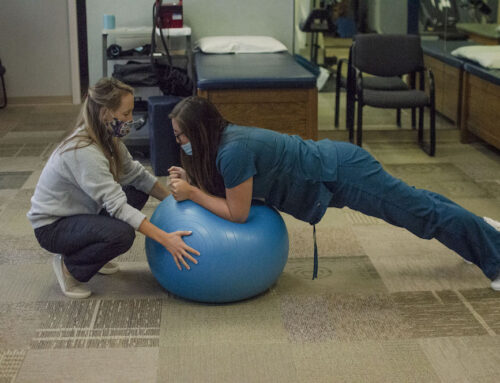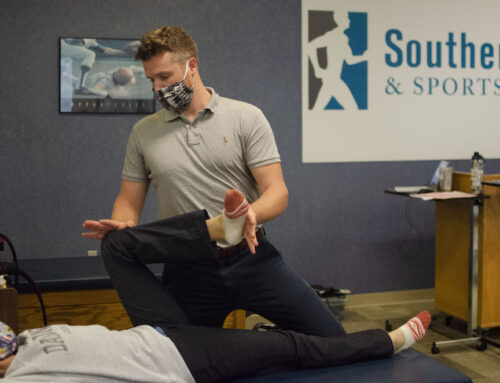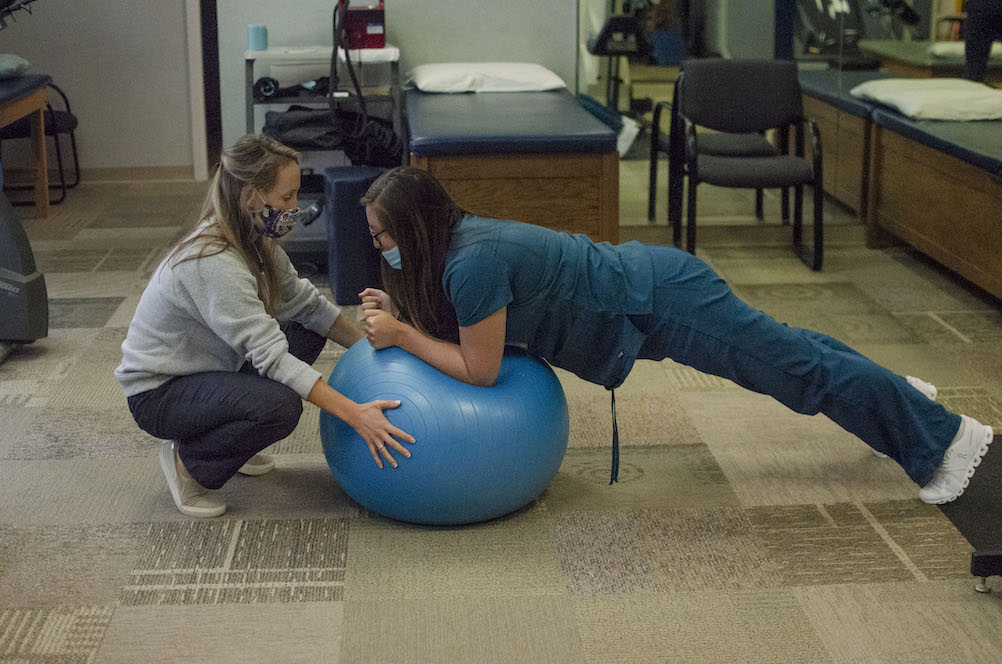If you are experiencing any of the following, Pelvic Floor Physical Therapy may be the solution for you.
- Pain in the hip, pelvis, abdomen or lower back?
- Urinary and fecal incontinence?
- Painful urination or urgency?
- Pain during intercourse?
- Uterine prolapse?
Why are you still hurting long after giving birth to your bundle of joy? The problem could be caused by a pelvic floor muscle problem.
What is the pelvic floor?
Your pelvic floor is like a hammock or a bowl of muscles, ligaments and connective tissue that work together to support your urinary and reproductive tract, including the uterus, bladder and vagina. When these muscles don’t work as they should, you can experience pain and it can interfere with normal functioning.
Some physicians may not know about pelvic floor therapy. They may suggest tests or scans, or some may even mistakenly tell women the pain they experience is related to stress or anxiety. That’s because doctors are trained to look at organs first instead of muscles. But did you know you can go to a pelvic floor therapist without a referral and still have it covered by your insurance?
Pelvic floor therapy uses the principles of physical therapy to safely and effectively improve the strength and function of your pelvic floor muscles. Your therapist is specially trained in techniques to help with pain, incontinence and other pelvic floor dysfunction.
How your body changes during pregnancy
Doctors say half of all pregnant women experience some kind of back pain during pregnancy. Your posture changes. Sciatic nerve pain is also common – the nerve that connects your spine to your lower body. Pelvic pain can also happen. This can be due to your hormone levels changing. Estrogen, progesterone and relaxin help your ligaments stretch and make your joints more mobile to accommodate your growing baby. Even organs are shifting around to make extra room. As you start your second trimester, you may start to feel pain in your side as the uterus tilts and pulls on the ligament that runs from the top of the uterus to your groin. In your third trimester, the baby’s weight may press down on the nerves that run into your legs.
All of the stretching of the pelvic floor allows the baby to pass through. After birth, your muscles and ligaments harden again. But it can also affect your spinal alignment and lead to postpartum pain.
Pelvic floor physical therapy can help with
What to expect with pelvic floor physical therapy
Your first visit will include an evaluation of your pelvic muscle strength and the flexibility of your hip and pelvic muscles. We understand even talking about problems in your pelvic region can be difficult so our therapist is sensitive to your needs and privacy. We can also provide a wellness screening of the musculoskeletal dysfunctions that women commonly experience during the child-bearing years to check your posture, ergonomics and pelvic floor function. A treatment plan will then be customized to your diagnosis and personal goals. It may include a range of techniques to stretch and strengthen muscles or alleviate pain and cramping. The good news is that many of the issues can be significantly improved in just one or two visits. And, of course, no doctor’s referral is necessary to get this treatment.
Meet Dr. Gacek– Southern Rehab and Sports Medicine’s women’s health expert
Dr. Marissa Gacek has a doctorate in physical therapy from the University of South Alabama, Mobile. She is an expert in women’s health, with a Level 1 Pelvic Function, Dysfunction and Treatment Certificate, and is also certified in dry needling. Dr. Gacek saw her mother suffer from untreated post-natal disorders after giving birth to her and her four siblings. That led her to want to help other women. There are only a few pelvic specialists in this slowly growing field, so we are thrilled to have her at Southern Rehab and Sports Medicine.
Let us help you restore pelvic floor function so you can get back to enjoying life. Schedule an appointment with Dr. Gacek today!









